It is a fallacy that the technical director deals exclusively with technical issues.
Integration is historically one of the main directions of LANIT and a significant part of the group's business. The company "LANIT-Integration" specializes in IT consulting, design, implementation and support of infrastructure solutions. Today it employs more than 500 people. We want to introduce you to one of the first persons of LANIT-Integration - its technical director Andrei Bedran . Especially for Habr, he told about his tasks, principles of management, the technical service team, how to select people for it, about project lifehacks.

In the seventh grade, I had my first computer: I began to program and study hardware. Served and upgraded it too. This predetermined my interests and career choices.
I must say that my parents were far from the position of "let the child first understand what the soul is for, and only then ...". I think they were right. It seems to me that such mentoring does not help in any way to choose a profession in demand in the market that will be well paid.
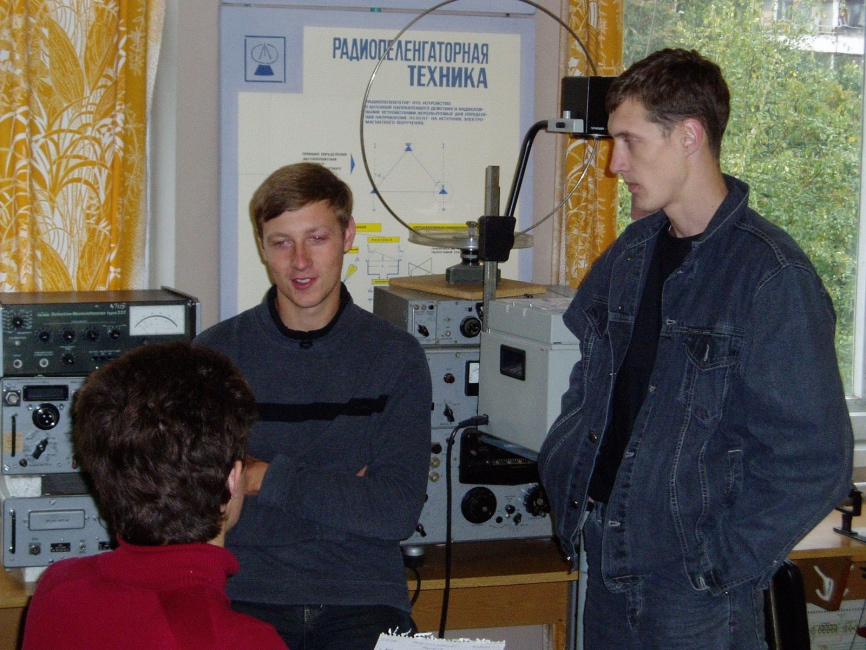
In addition to the computer hobby, sport played an important role in my professional development. This is where you can easily achieve nothing. I have been playing volleyball since the third grade. At some point, there was a choice between sports and other areas, but there was a knee injury that could not be operated due to age. You could forget about sports career. Although now I think that I would have chosen the path of the “white collar”: after all, sport is a very risky story.
In 1999 I finished school with a medal and began to choose a university. At that time, information security was the highest paid IT area, so I decided to immediately enter the information security department of the Russian State Humanitarian University. He entered the first attempt and graduated with a red diploma.
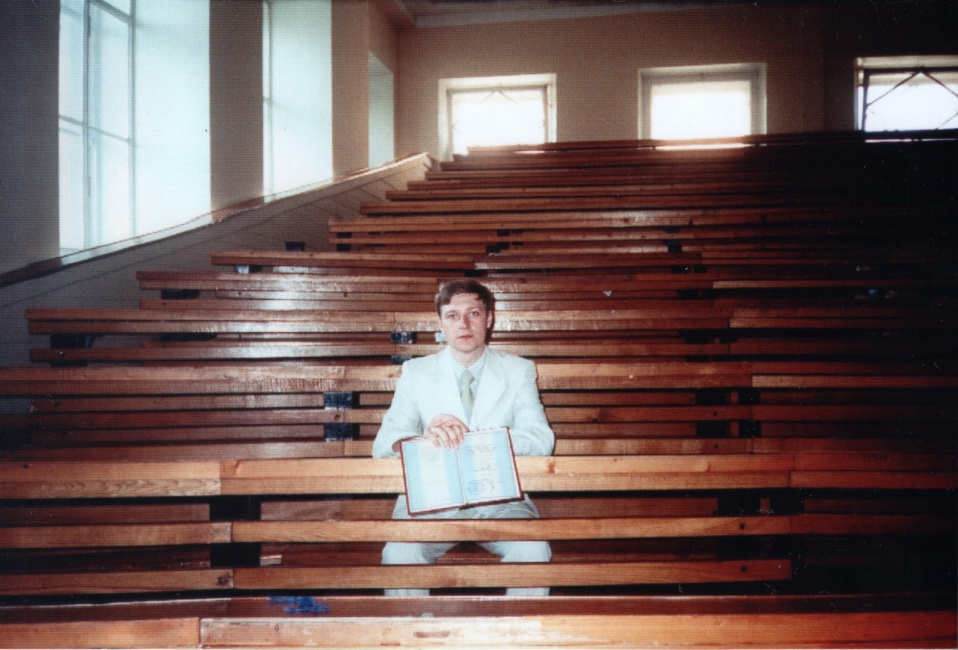
He always worked in his specialty. In my biography there was no such thing that at first I went to the factory as a master of the third category, and then - set up IT equipment. He began his career in the second year of university in consulting companies. Before joining LANIT, Technoserv and NVision were.
I never had ambitions to build a career vertically. I moved from company to company by invitation, I did not specifically search for anything. Everything turned out somehow organic: growing professionally, there was a new, interesting from the point of view of the functional proposal, passed. I came to LANIT in 2011 as the head of the information security department, and again sport played a significant role here.
I have three passions in my life: Russian billiards, chess and volleyball. Thanks to the latter, I know almost all of volleyball Moscow. The LANIT was once a volleyball team. We crossed paths in the gymnasium, and then got into conversation, and somehow it happened that I came to LANIT to work.
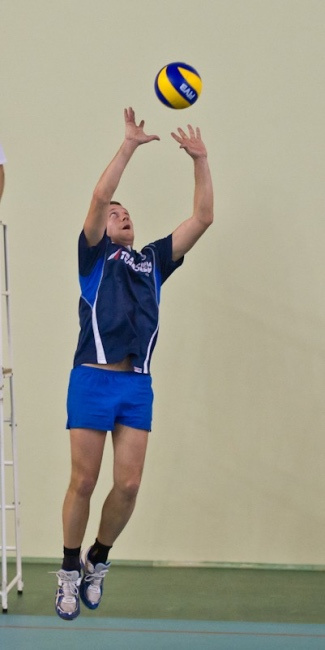
Actually, I immediately realized that LANIT is primarily a platform for development. There are all the possibilities: finance, customer bases (please sell), vendor packages, low bureaucracy. All cards on hand. In other companies where I worked, it was not so. They either put you in the process, or they will give you something that will be in demand for a year and a half.
In LANIT, of course, there is a volume of work that you must do, but no one will hit you if you take the initiative. There are experienced tutors. You can always discuss your ideas with management and, if you are persuaded, get support. For example, on the basis of a demo data center, we created a newest presentation hall where you can showcase IT products and test solutions. Another example - on our initiative, a marketing department was created in the technical department of LANIT-Integration, to which the functions of promoting the services and products of the entire company were transferred.
The main business of LANIT-Integration is a classic of the IT genre: we need to build infrastructural solutions from unique components that help customers to cope with business tasks.
We must be well versed in the products that manufacturers offer, and be able to quickly test everything, understand whether a particular component is suitable for the customer, and include it in their own comprehensive solution. Then we need to design everything, implement it so that it works, and take it on for service.
From year to year we evolve. Now we have many grand projects in our portfolio, where we act as a general contractor (for example, the equipment of the Otkritie Arena stadium). This means that we control everything: construction, development, service. Therefore, a lot is changing here: risk management, budgeting, and logistics. The latter, for example, has become fast: not weeks and days, but literally hours, when something is urgently required at the facility. In the classic IT business there is no such thing.
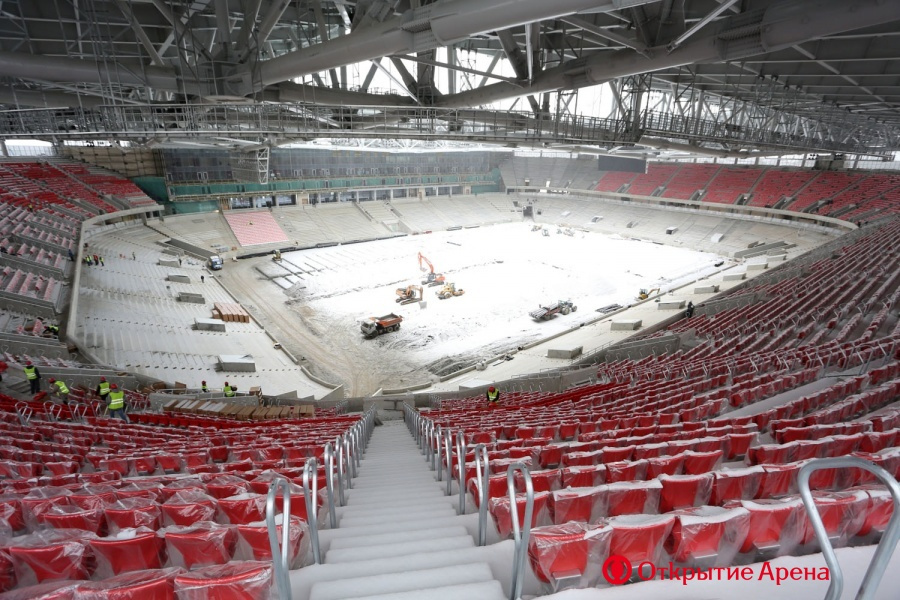 For the Otkrytie Arena stadium, we designed and deployed a universal technical solution that includes uninterrupted power supply for cross-country premises and a data processing center, a structured cable system, IP television, a telephone system, a multi-service data network, information security and digital signage for video advertising and informing.
For the Otkrytie Arena stadium, we designed and deployed a universal technical solution that includes uninterrupted power supply for cross-country premises and a data processing center, a structured cable system, IP television, a telephone system, a multi-service data network, information security and digital signage for video advertising and informing.
For three years, in addition to the main business of LANIT-Integration, we have new directions. For example, development, niche products in the field of consulting. It is also the Expert on Demand service, in which our specialists help to solve non-specific IT tasks, or the Nothing Extra service, which helps reduce the costs of owning the IT infrastructure.
We can even teach: “The course of the young fighter” is just so that the specialists (one or two people) of the client company can acquire new skills and knowledge directly in practice. We offer them to work as trainees on our projects, where you can see the new equipment, learn the nuances of its implementation, etc. With us you can organize a "Safe Relocation". Every few weeks we offer a new product (service), although this is not the core of our company's business.
It is a misconception that the technical director deals exclusively with technical issues. Now it is impossible to remain a sought-after specialist without the ability to see the potential for his business in related directions. You should always look around. Of course, it is difficult to do this when the company is the leader in the market, because the former sets the direction. And yet I am not ready to associate myself with the business that had everything. We are not in the United States, Japan, Germany or China, where there really was a lot. In the Russian Federation, the maturity of the IT integration market is about 15 years. We only dig stick. Therefore, we must understand that the world is more complicated and wider.
Previously, our main task was to introduce something, so the technical unit was perceived as "implementers." Now you can not be a technical director and deal only with technology. It does not bring a business result. The technologies that we introduce should help the customer save or earn in the future for five to seven years. If you cannot clearly tell why it is necessary to do this way and that is exactly this, no one will buy anything from you. You will have nothing to implement. You can understand the switch settings as much as you like, but you must first sell them. Now even the heads of technical departments have no right not to be interested in money, sales strategies, marginality, competitive features of their decisions.
Every year, two average players leave the market. Not because the market has become much smaller, but because the requirements for people, business and projects, and customer attitudes have changed dramatically.
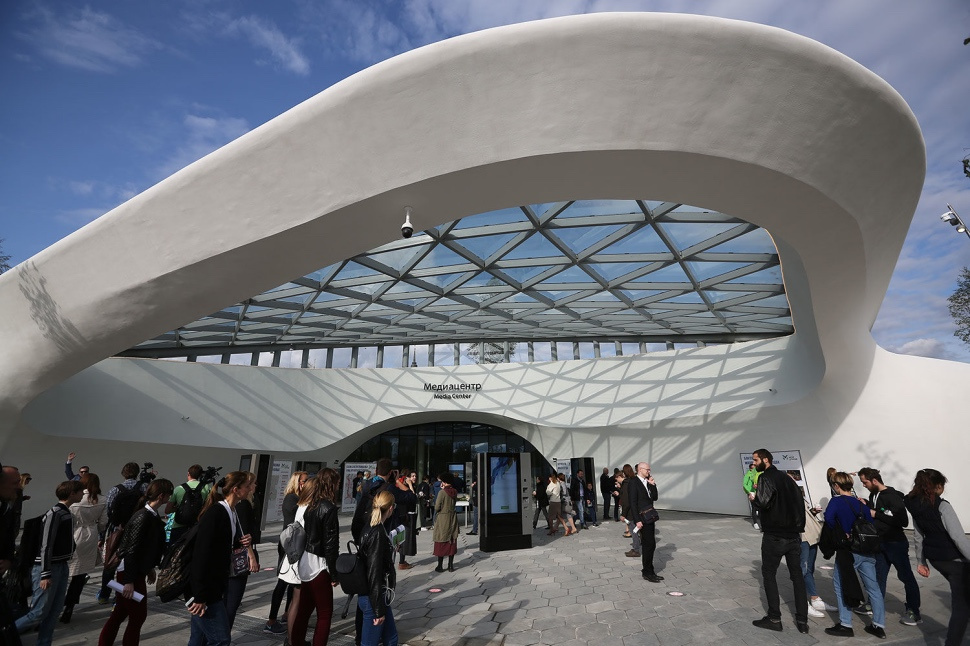
A source
Media Center area of more than 7.8 thousand square meters. m - IT-based "Zaryadyya": it combines all the rides, the entire IT infrastructure of the park.
Without marketing now it is impossible to sell something in principle. You should have a very beautiful formal part: presentation, offer, website, events. But content is our responsibility. No marketer will write for a technician the right suggestions to customers with an understanding of the specifics and requirements.
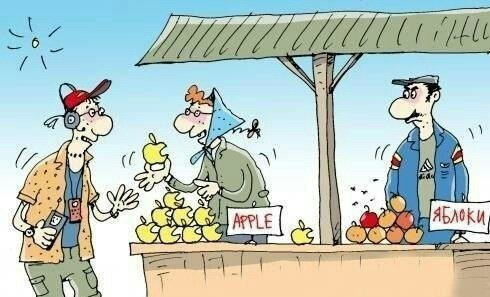 A source
A source
In the companies where I used to work, the situation was different with marketing. It was such a formal pelt that may have been dictated by time. Now marketing can only be sold by those who generate the product, develop, implement and communicate with vendors. Therefore, marketing is in our technical department and I supervise it.
The first goal of our marketing is to enter the small and medium business market (SMB), where LANIT is poorly represented and successfully sell it. Since the summer of 2016, we are constantly developing products for small and medium business. We sell what the customer needs, which removes his headache.
The second goal of marketing in LANIT-Integration is to simplify the access for customers to those industries where we were not represented.
In our field, the value of a specialist is determined by the fact that he has enough experience to understand how not to do it. Almost everyone knows “how to”, only successful experience cannot be replicated on all projects. There are always side effects. Only when you have specialists who know exactly how not to do, there is a chance to implement a successful project.
In LANIT-Integration there are a lot of people with experience. Our team was going to evolve as the company grew out of the network integration department of LANIT.
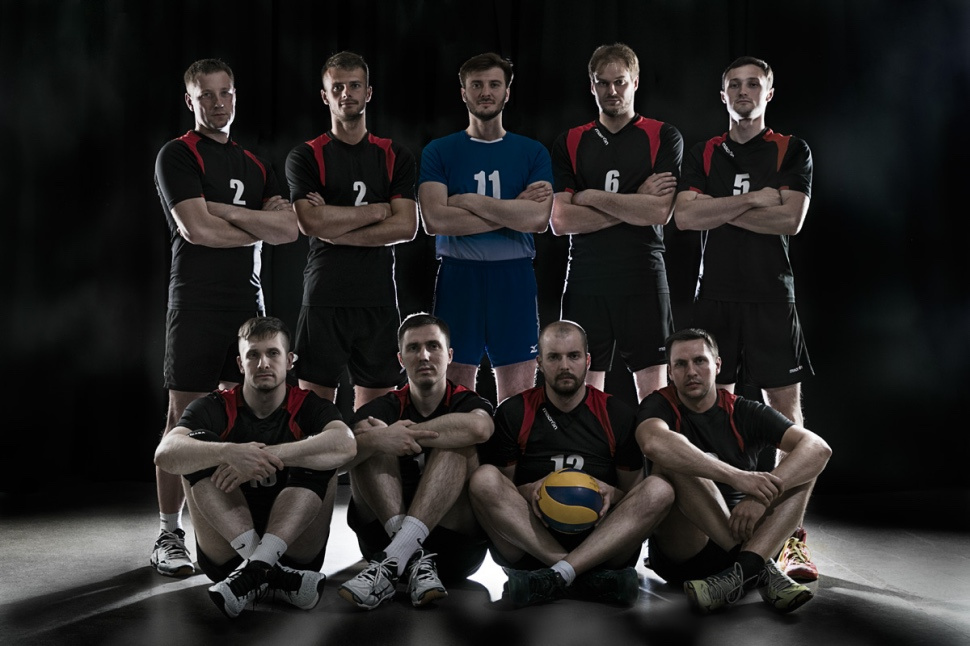
We clearly understand that we must have a team whose competencies we will need in the short term - today or tomorrow. If some competence is not needed tomorrow, then people need to be reoriented so that they can retain personal demand for projects.
It is also important to understand that in IT everything is methodologically thought out either for development (coding) or for those who support the system — it repairs and administers. There is a cool scientific base. In the middle - just where we work - greenfield. If we add to this the domestic specifics of doing business (problems in procurement, terms, tenders, legal relations with contractors), then all companies get personal survival recipes. The recipe for our success is the team. Our technical unit is several hundred people. Their efficiency is very high: we carry out over two hundred projects a year. In many ways, thanks to the results of LANIT-Integration, the LANIT group for several years in a row is No. 1 in terms of revenue among companies providing IT services in Russia (according to IDC).
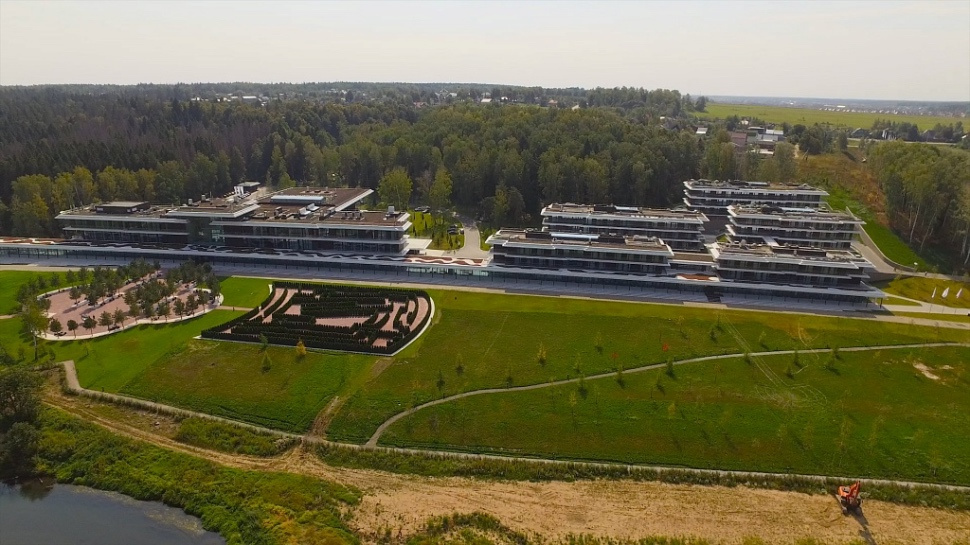
We have created an information technology system and a multimedia complex at Sberbank Corporate University.
To be effective, it is important for people to know why each of them does something and how to do it. When a person does not know, he thinks out, and not the fact that everything invented will be exactly the way you expect. We recently introduced semi-annual and annual meetings. I try to meet everyone, talk about success in projects, give feedback.
This allows you to avoid the phenomenon of professional burnout, which occurs when you live for a long time in the framework of one TK without plans and ideas. When you outlined to yourself some kind of circle, within which you want to become the best, and become them. At first, you feel pride, and then gradually, without noticing it, you deflate.
The first whale of our management system is transparency of goals. It is important that everyone understands where we are going, and that I understand my team.
The second principle of management is demanding. You can not set a task and then forget about it. You can not draw a project plan and throw it in the basket - you must execute. And in both directions. Otherwise, nothing happens.
The third postulate is to delegate everything you can. If you do not delegate, the staff will not grow, and you yourself can do little. You need to manage a team that can do a lot autonomously. Such a command may appear if you trust and trust you. If this mechanism is not built, then you yourself will always run everywhere and finish everything yourself. It is unreal.
Our life hack, which works for projects of any scale in the engineering unit, is constantly in sync with the team in terms of goals, objectives and consequences. For some reason, it is considered (I have seen this repeatedly) that, with respect to engineers, this is not necessary. I told the engineer to do something, and the engineer went and did. I can not understand why. After all, not everything is so well standardized so that you can forget about communication. But in practice this is often the case: is there an engineer? Went and set up ... Went and designed ... It does not work.
 A source
A source
I believe that a normal person, without deviations, does not want to do his work poorly a priori. He wants to do exactly or well.
So, in order for a person to do well, he needs to explain what this project is and why it is all. Therefore, we try to show people causal relationships: “We are doing this project. The expectations of the customer are as follows. Therefore, the dates are as follows. Terms of the contract are. We make money like this. ” It is necessary to know the engineer. In percent, in numbers. What we earn on the project that it is not Sisyphean work.
The first mistake of any manager, and I also passed it, was to judge people by myself. I thought that if I could, then everyone else could. And better. This turned out to be fundamentally wrong: all people are different, all have their own pros and cons, different strengths and weaknesses. It is necessary to try to come into contact with the person of the pros, to cooperate with him in relation to his capabilities.
Moreover, all the time I was considering a person in the complex: “Well, probably this person for so many points. It will not work with him. ” Now revised it, and it became easier and easier. You approach an apple tree - focus on its fruits, and not on the beauty of the tree. Probably there are trees more beautiful than an apple tree, but only she has apples. If you need apples, then look at them. It is very difficult. This is the wisdom of the leader - to understand what a person can. And, of course, look what a person wants. Previously, I was not interested. It was also a mistake. But then I didn’t take big positions so that a lot of people would suffer from this [Laughs]. Now I focus on the possibilities.
What a person can and wants is about in half. Understanding what an employee wants is extremely important. Everyone has their own list. Money, of course, is there. They are in the top five, but clearly not in the first place. Someone needs comfort, someone needs communication with colleagues, someone needs to engage in an interesting specialty or work with some equipment, someone needs to go on business trips more often because he wants to see the country and the world. If you understand this and give a person in exchange for what he can be useful to the company, everyone will benefit from it. Here, of course, you need to spend a lot of effort, but for key employees it is simply necessary to do it.

I do not allow disloyalty to the company and disrespect for colleagues. He came to the team - be kind to all politely communicate, communicate about business, try to do the work to the maximum.
Loving your company is a must have. If a person treats a company badly, then why does he work in it? It turns out that either he cannot find another place, or he treats himself badly. Both options are bad. What dissatisfied - work or yourself - a person can broadcast to the world? How will he work on projects? The answers are obvious.
We demand results, growth, effort and long trips from employees. Have to work where hard. Try to work one day in the server! It is very noisy and cold, if someone does not know. It is hard work, but also great pleasure from what I could.
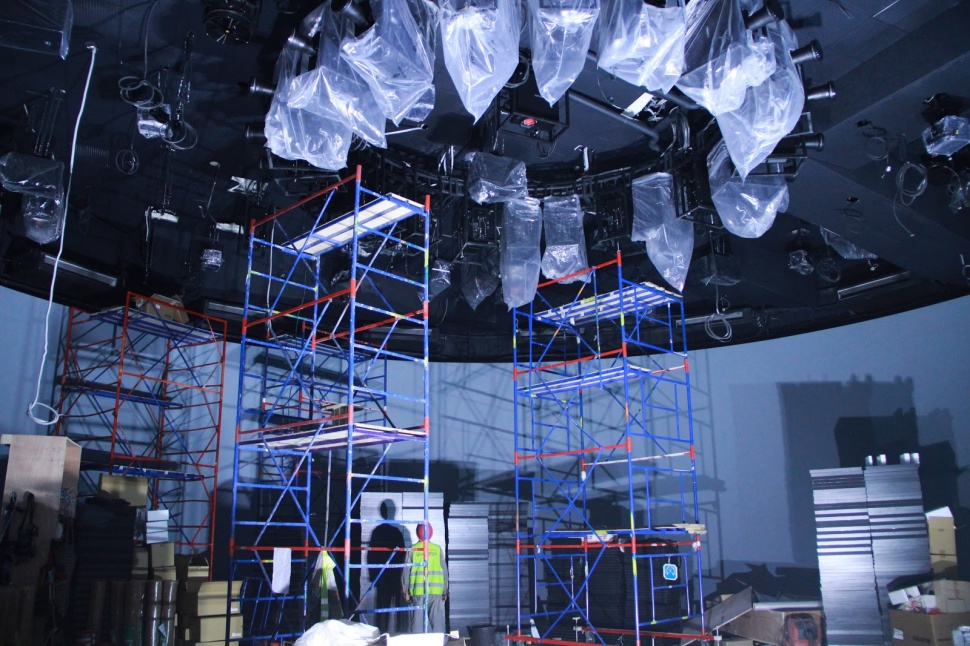
Installation of multimedia systems in Zaryadye
It is important if something burns inside a person, if a person is not calm in life. And the topic is not important. He may not know anything at all about the integration business. For example, he came to us from the oil and gas industry, but there he was the project manager, and he did it. If a person has many hobbies, an active life position, then we need such a person. We will pick up its energy, we will teach it, and it will be very useful. He will infect colleagues and people with this energy. Exactly this thing I try to identify at interviews.
My interview is one of the last frontiers when applying for a job. He is reached by good candidates who have received the approval of HR and managers of technical verticals. The knowledge of the candidates was checked by the department heads. My task is to determine the level of self-motivation and controllability. The vital attitudes of man are very important. First of all, where he is improving: let him try the wine or the cinema is interested. Yes, anything! It is important how he does it from year to year, its dynamics.
For example, very many run: on the track, in the parks, somewhere else. Here is a man speaking at the interview: "I run."
Well, it's great. It doesn't matter when you do it - in the morning or in the evening, but obviously you force yourself. This is exactly the work. As an athlete, I know that. I ask the candidate: “How do you run? Do you have indicators, time? ”And people immediately fall into two categories: the first runs for pleasure, the second for the result.
For a person who just runs like that, the process is important, not the result. You start asking him about books, work, and he tells you about everything in the same paradigm. This is a good person, it happens - just wonderful. Such people are definitely needed. But for work in projects, we give preference to those who want to work towards the result in everything.
A very important quality candidate - manageability. This is when a person was told to do something, but he does not agree, he thinks differently, he does not see the point (maybe a billion reasons!), But he goes and does. He, of course, can express his thoughts, he will be listened to, but still it is necessary to do it.
Handling is also detected at the interview. This quality is very necessary for teamwork, because the manager does not always have time to explain. Not always the employee has the experience to realize. By the way, I also managed. Of course, I will not be silent, but I will definitely do it. Otherwise the pyramid does not work.
Each project lacks something. I am guided by the principle of knowing this “something”, which consists of three components. First, you must ask the knower. Find and ask for advice on this issue. Without this, a one-sided picture of the world is obtained.
The second component is to know the materiel (books, courses, etc.). You can go to the vendor to communicate, you can watch from a competitor, you can assemble and study the laboratory.
And the third is personal experience. You have to try it yourself. You can read as much as you like, but until you have tried it yourself, then all this is not worth a damn.
When you have passed all three stages, you have your own opinion about this. If this is a quality opinion of its own, then you can be considered a bit expert. If you want to become an expert, you have to repeat this whole path many times.
The same in projects. If there is a lack of theoretical knowledge, it means - go learn, not enough practice - use the material base: the demo center, the engineering unit.

I love vendor conferences. These events are valuable because partners from all over the world gather at them, and you can communicate with everyone and learn the specifics: it’s easier to learn something than to reinvent it. I like to communicate with Hindus, Chinese, South Koreans, Japanese, representatives of African countries. They are interesting and new decisions, and financial policies. They are ready to pass on the initiative.
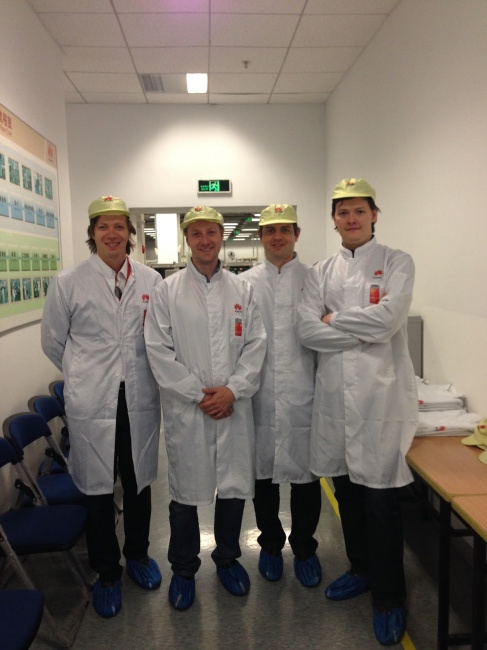
In the year I read about 15-25 books from the professional sphere - everything that is new in IT, marketing, sales, and people management.
I also have my own personal shelf at home, where there are “paper” books that I would reread several times and which I would definitely recommend to anyone, no matter what he does.
Bookshelf by Andrei Bedran
“Russian model of management” by Alexander Prokhorov and “Think slowly ... Decide quickly” by Daniel Kahneman should be read at least twice. They do not belong to the profession, they are complex, but the ideas from these books a person must know if he lives in Russia and is engaged in intellectual work.
We have a lot of perspectives for everyone at different stages. For everyone: for engineers, for architects, and for presales. Everyone can come to me to talk or consult. I believe that one of my very important tasks as a technical director is to inspire, tell employees about goals and talk about topics of failure.

About LANIT-Integration
LANIT-Integration was founded in 2008 on the basis of the LANIT company’s network integration department. In fact, we are 20 years on the market. During this time, our specialists have implemented many projects of varying complexity and scale. For example, they created an information technology system and a multimedia complex at the Corporate University of Sberbank of Russia, the IT infrastructure of the Luzhniki Olympic complex and the Zaryadye entertainment park, equipped the Moscow City Duma building ensemble with the engineering and IT infrastructure. We wrote about the creation of telecommunications, multimedia and IT infrastructure of the Otkrytie Arena stadium and the modernization of the meteorological network of Roshydromet on Habré here and here .
Until now, LANIT-Integration has focused on solving problems of large companies. However, today it offers complete technical solutions and turnkey projects for small and medium-sized businesses.
')

As part of the solutions for Luzhniki, there is a modern system of collective reception of IP television, which allows, for example, to transmit signals from TV cameras that shoot what is happening on the football field, on a TV panel in restaurants and SKY boxes.
Until now, LANIT-Integration has focused on solving problems of large companies. However, today it offers complete technical solutions and turnkey projects for small and medium-sized businesses.
')

As part of the solutions for Luzhniki, there is a modern system of collective reception of IP television, which allows, for example, to transmit signals from TV cameras that shoot what is happening on the football field, on a TV panel in restaurants and SKY boxes.
On the choice of profession
In the seventh grade, I had my first computer: I began to program and study hardware. Served and upgraded it too. This predetermined my interests and career choices.
I must say that my parents were far from the position of "let the child first understand what the soul is for, and only then ...". I think they were right. It seems to me that such mentoring does not help in any way to choose a profession in demand in the market that will be well paid.

In addition to the computer hobby, sport played an important role in my professional development. This is where you can easily achieve nothing. I have been playing volleyball since the third grade. At some point, there was a choice between sports and other areas, but there was a knee injury that could not be operated due to age. You could forget about sports career. Although now I think that I would have chosen the path of the “white collar”: after all, sport is a very risky story.
In 1999 I finished school with a medal and began to choose a university. At that time, information security was the highest paid IT area, so I decided to immediately enter the information security department of the Russian State Humanitarian University. He entered the first attempt and graduated with a red diploma.

He always worked in his specialty. In my biography there was no such thing that at first I went to the factory as a master of the third category, and then - set up IT equipment. He began his career in the second year of university in consulting companies. Before joining LANIT, Technoserv and NVision were.
About ambitions
I never had ambitions to build a career vertically. I moved from company to company by invitation, I did not specifically search for anything. Everything turned out somehow organic: growing professionally, there was a new, interesting from the point of view of the functional proposal, passed. I came to LANIT in 2011 as the head of the information security department, and again sport played a significant role here.
I have three passions in my life: Russian billiards, chess and volleyball. Thanks to the latter, I know almost all of volleyball Moscow. The LANIT was once a volleyball team. We crossed paths in the gymnasium, and then got into conversation, and somehow it happened that I came to LANIT to work.

Actually, I immediately realized that LANIT is primarily a platform for development. There are all the possibilities: finance, customer bases (please sell), vendor packages, low bureaucracy. All cards on hand. In other companies where I worked, it was not so. They either put you in the process, or they will give you something that will be in demand for a year and a half.
In LANIT, of course, there is a volume of work that you must do, but no one will hit you if you take the initiative. There are experienced tutors. You can always discuss your ideas with management and, if you are persuaded, get support. For example, on the basis of a demo data center, we created a newest presentation hall where you can showcase IT products and test solutions. Another example - on our initiative, a marketing department was created in the technical department of LANIT-Integration, to which the functions of promoting the services and products of the entire company were transferred.
About company business
The main business of LANIT-Integration is a classic of the IT genre: we need to build infrastructural solutions from unique components that help customers to cope with business tasks.
We must be well versed in the products that manufacturers offer, and be able to quickly test everything, understand whether a particular component is suitable for the customer, and include it in their own comprehensive solution. Then we need to design everything, implement it so that it works, and take it on for service.
From year to year we evolve. Now we have many grand projects in our portfolio, where we act as a general contractor (for example, the equipment of the Otkritie Arena stadium). This means that we control everything: construction, development, service. Therefore, a lot is changing here: risk management, budgeting, and logistics. The latter, for example, has become fast: not weeks and days, but literally hours, when something is urgently required at the facility. In the classic IT business there is no such thing.

For three years, in addition to the main business of LANIT-Integration, we have new directions. For example, development, niche products in the field of consulting. It is also the Expert on Demand service, in which our specialists help to solve non-specific IT tasks, or the Nothing Extra service, which helps reduce the costs of owning the IT infrastructure.
We can even teach: “The course of the young fighter” is just so that the specialists (one or two people) of the client company can acquire new skills and knowledge directly in practice. We offer them to work as trainees on our projects, where you can see the new equipment, learn the nuances of its implementation, etc. With us you can organize a "Safe Relocation". Every few weeks we offer a new product (service), although this is not the core of our company's business.
On the role of technical director
It is a misconception that the technical director deals exclusively with technical issues. Now it is impossible to remain a sought-after specialist without the ability to see the potential for his business in related directions. You should always look around. Of course, it is difficult to do this when the company is the leader in the market, because the former sets the direction. And yet I am not ready to associate myself with the business that had everything. We are not in the United States, Japan, Germany or China, where there really was a lot. In the Russian Federation, the maturity of the IT integration market is about 15 years. We only dig stick. Therefore, we must understand that the world is more complicated and wider.
Previously, our main task was to introduce something, so the technical unit was perceived as "implementers." Now you can not be a technical director and deal only with technology. It does not bring a business result. The technologies that we introduce should help the customer save or earn in the future for five to seven years. If you cannot clearly tell why it is necessary to do this way and that is exactly this, no one will buy anything from you. You will have nothing to implement. You can understand the switch settings as much as you like, but you must first sell them. Now even the heads of technical departments have no right not to be interested in money, sales strategies, marginality, competitive features of their decisions.
Every year, two average players leave the market. Not because the market has become much smaller, but because the requirements for people, business and projects, and customer attitudes have changed dramatically.

A source
Media Center area of more than 7.8 thousand square meters. m - IT-based "Zaryadyya": it combines all the rides, the entire IT infrastructure of the park.
About marketing that sells
Without marketing now it is impossible to sell something in principle. You should have a very beautiful formal part: presentation, offer, website, events. But content is our responsibility. No marketer will write for a technician the right suggestions to customers with an understanding of the specifics and requirements.

In the companies where I used to work, the situation was different with marketing. It was such a formal pelt that may have been dictated by time. Now marketing can only be sold by those who generate the product, develop, implement and communicate with vendors. Therefore, marketing is in our technical department and I supervise it.
The first goal of our marketing is to enter the small and medium business market (SMB), where LANIT is poorly represented and successfully sell it. Since the summer of 2016, we are constantly developing products for small and medium business. We sell what the customer needs, which removes his headache.
The second goal of marketing in LANIT-Integration is to simplify the access for customers to those industries where we were not represented.
About the team and professional burnout
In our field, the value of a specialist is determined by the fact that he has enough experience to understand how not to do it. Almost everyone knows “how to”, only successful experience cannot be replicated on all projects. There are always side effects. Only when you have specialists who know exactly how not to do, there is a chance to implement a successful project.
In LANIT-Integration there are a lot of people with experience. Our team was going to evolve as the company grew out of the network integration department of LANIT.

We clearly understand that we must have a team whose competencies we will need in the short term - today or tomorrow. If some competence is not needed tomorrow, then people need to be reoriented so that they can retain personal demand for projects.
It is also important to understand that in IT everything is methodologically thought out either for development (coding) or for those who support the system — it repairs and administers. There is a cool scientific base. In the middle - just where we work - greenfield. If we add to this the domestic specifics of doing business (problems in procurement, terms, tenders, legal relations with contractors), then all companies get personal survival recipes. The recipe for our success is the team. Our technical unit is several hundred people. Their efficiency is very high: we carry out over two hundred projects a year. In many ways, thanks to the results of LANIT-Integration, the LANIT group for several years in a row is No. 1 in terms of revenue among companies providing IT services in Russia (according to IDC).

We have created an information technology system and a multimedia complex at Sberbank Corporate University.
To be effective, it is important for people to know why each of them does something and how to do it. When a person does not know, he thinks out, and not the fact that everything invented will be exactly the way you expect. We recently introduced semi-annual and annual meetings. I try to meet everyone, talk about success in projects, give feedback.
This allows you to avoid the phenomenon of professional burnout, which occurs when you live for a long time in the framework of one TK without plans and ideas. When you outlined to yourself some kind of circle, within which you want to become the best, and become them. At first, you feel pride, and then gradually, without noticing it, you deflate.
About management principles
The first whale of our management system is transparency of goals. It is important that everyone understands where we are going, and that I understand my team.
The second principle of management is demanding. You can not set a task and then forget about it. You can not draw a project plan and throw it in the basket - you must execute. And in both directions. Otherwise, nothing happens.
The third postulate is to delegate everything you can. If you do not delegate, the staff will not grow, and you yourself can do little. You need to manage a team that can do a lot autonomously. Such a command may appear if you trust and trust you. If this mechanism is not built, then you yourself will always run everywhere and finish everything yourself. It is unreal.
About lifehacks on projects
Our life hack, which works for projects of any scale in the engineering unit, is constantly in sync with the team in terms of goals, objectives and consequences. For some reason, it is considered (I have seen this repeatedly) that, with respect to engineers, this is not necessary. I told the engineer to do something, and the engineer went and did. I can not understand why. After all, not everything is so well standardized so that you can forget about communication. But in practice this is often the case: is there an engineer? Went and set up ... Went and designed ... It does not work.

I believe that a normal person, without deviations, does not want to do his work poorly a priori. He wants to do exactly or well.
So, in order for a person to do well, he needs to explain what this project is and why it is all. Therefore, we try to show people causal relationships: “We are doing this project. The expectations of the customer are as follows. Therefore, the dates are as follows. Terms of the contract are. We make money like this. ” It is necessary to know the engineer. In percent, in numbers. What we earn on the project that it is not Sisyphean work.
About errors
The first mistake of any manager, and I also passed it, was to judge people by myself. I thought that if I could, then everyone else could. And better. This turned out to be fundamentally wrong: all people are different, all have their own pros and cons, different strengths and weaknesses. It is necessary to try to come into contact with the person of the pros, to cooperate with him in relation to his capabilities.
Moreover, all the time I was considering a person in the complex: “Well, probably this person for so many points. It will not work with him. ” Now revised it, and it became easier and easier. You approach an apple tree - focus on its fruits, and not on the beauty of the tree. Probably there are trees more beautiful than an apple tree, but only she has apples. If you need apples, then look at them. It is very difficult. This is the wisdom of the leader - to understand what a person can. And, of course, look what a person wants. Previously, I was not interested. It was also a mistake. But then I didn’t take big positions so that a lot of people would suffer from this [Laughs]. Now I focus on the possibilities.
What a person can and wants is about in half. Understanding what an employee wants is extremely important. Everyone has their own list. Money, of course, is there. They are in the top five, but clearly not in the first place. Someone needs comfort, someone needs communication with colleagues, someone needs to engage in an interesting specialty or work with some equipment, someone needs to go on business trips more often because he wants to see the country and the world. If you understand this and give a person in exchange for what he can be useful to the company, everyone will benefit from it. Here, of course, you need to spend a lot of effort, but for key employees it is simply necessary to do it.

About compromises
I do not allow disloyalty to the company and disrespect for colleagues. He came to the team - be kind to all politely communicate, communicate about business, try to do the work to the maximum.
Loving your company is a must have. If a person treats a company badly, then why does he work in it? It turns out that either he cannot find another place, or he treats himself badly. Both options are bad. What dissatisfied - work or yourself - a person can broadcast to the world? How will he work on projects? The answers are obvious.
About work in pleasure
We demand results, growth, effort and long trips from employees. Have to work where hard. Try to work one day in the server! It is very noisy and cold, if someone does not know. It is hard work, but also great pleasure from what I could.

Installation of multimedia systems in Zaryadye
It is important if something burns inside a person, if a person is not calm in life. And the topic is not important. He may not know anything at all about the integration business. For example, he came to us from the oil and gas industry, but there he was the project manager, and he did it. If a person has many hobbies, an active life position, then we need such a person. We will pick up its energy, we will teach it, and it will be very useful. He will infect colleagues and people with this energy. Exactly this thing I try to identify at interviews.
About interviews
My interview is one of the last frontiers when applying for a job. He is reached by good candidates who have received the approval of HR and managers of technical verticals. The knowledge of the candidates was checked by the department heads. My task is to determine the level of self-motivation and controllability. The vital attitudes of man are very important. First of all, where he is improving: let him try the wine or the cinema is interested. Yes, anything! It is important how he does it from year to year, its dynamics.
For example, very many run: on the track, in the parks, somewhere else. Here is a man speaking at the interview: "I run."
Well, it's great. It doesn't matter when you do it - in the morning or in the evening, but obviously you force yourself. This is exactly the work. As an athlete, I know that. I ask the candidate: “How do you run? Do you have indicators, time? ”And people immediately fall into two categories: the first runs for pleasure, the second for the result.
For a person who just runs like that, the process is important, not the result. You start asking him about books, work, and he tells you about everything in the same paradigm. This is a good person, it happens - just wonderful. Such people are definitely needed. But for work in projects, we give preference to those who want to work towards the result in everything.
About manageability
A very important quality candidate - manageability. This is when a person was told to do something, but he does not agree, he thinks differently, he does not see the point (maybe a billion reasons!), But he goes and does. He, of course, can express his thoughts, he will be listened to, but still it is necessary to do it.
Handling is also detected at the interview. This quality is very necessary for teamwork, because the manager does not always have time to explain. Not always the employee has the experience to realize. By the way, I also managed. Of course, I will not be silent, but I will definitely do it. Otherwise the pyramid does not work.
About skills
Each project lacks something. I am guided by the principle of knowing this “something”, which consists of three components. First, you must ask the knower. Find and ask for advice on this issue. Without this, a one-sided picture of the world is obtained.
The second component is to know the materiel (books, courses, etc.). You can go to the vendor to communicate, you can watch from a competitor, you can assemble and study the laboratory.
And the third is personal experience. You have to try it yourself. You can read as much as you like, but until you have tried it yourself, then all this is not worth a damn.
When you have passed all three stages, you have your own opinion about this. If this is a quality opinion of its own, then you can be considered a bit expert. If you want to become an expert, you have to repeat this whole path many times.
The same in projects. If there is a lack of theoretical knowledge, it means - go learn, not enough practice - use the material base: the demo center, the engineering unit.

Competency enhancement
I love vendor conferences. These events are valuable because partners from all over the world gather at them, and you can communicate with everyone and learn the specifics: it’s easier to learn something than to reinvent it. I like to communicate with Hindus, Chinese, South Koreans, Japanese, representatives of African countries. They are interesting and new decisions, and financial policies. They are ready to pass on the initiative.

About books
In the year I read about 15-25 books from the professional sphere - everything that is new in IT, marketing, sales, and people management.
I also have my own personal shelf at home, where there are “paper” books that I would reread several times and which I would definitely recommend to anyone, no matter what he does.
Bookshelf by Andrei Bedran
- Daniel Kahneman "Think slowly ... Decide quickly"
- Alexander Prokhorov "Russian management model"
- Nassim Nicholas Taleb "The Black Swan. Under the sign of unpredictability "
- Elia M. Goldratt, Cox Jeffrey “Purpose. Continuous Improvement Process
- William Detmer, Goldratt's Theory of Constraints. A systematic approach to continuous improvement "
- Seth Godin "Purple Cow. Make your business outstanding! ”
- David Meister “First among equals. How to lead a group of professionals?
- Lido Anthony "Lee" Iacocca "Career Manager"
- Brian Moran, Michael Lennington “12 weeks a year. How in 12 weeks to do more than others have time for 12 months "
“Russian model of management” by Alexander Prokhorov and “Think slowly ... Decide quickly” by Daniel Kahneman should be read at least twice. They do not belong to the profession, they are complex, but the ideas from these books a person must know if he lives in Russia and is engaged in intellectual work.
Instead of conclusion
We have a lot of perspectives for everyone at different stages. For everyone: for engineers, for architects, and for presales. Everyone can come to me to talk or consult. I believe that one of my very important tasks as a technical director is to inspire, tell employees about goals and talk about topics of failure.
By the way, there are a couple of interesting vacancies in LANIT-Integration.
Source: https://habr.com/ru/post/338684/
All Articles